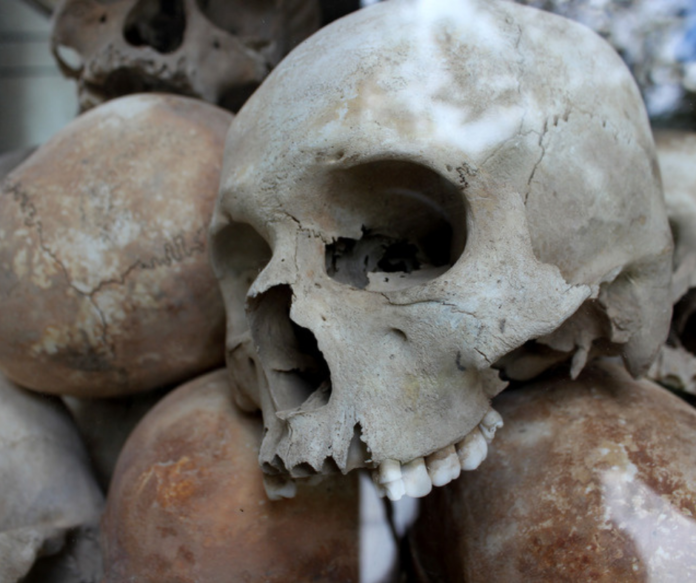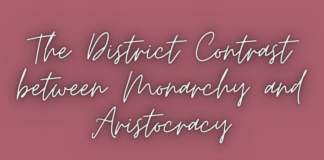Of all the greatest victories ever experienced, never has it taken an easy path. Rwanda was not an exception. As seen today, it is a peaceful and prosperous nation. But this was not the case 27 years ago in 1994. A great crisis hit all sectors of life in the country that year. That is, the 1994 genocide against Tutsi. With it, came many tragedies and whole new opportunity for change and growth. It took more than one person to bring back the country in shape. How did it occur? This is what’s going to be discussed.
With the help of a great hero named by Mutara III Rudahigwa who was a former king of Rwanda, Rwanda obtained independence on 1st July 1962. As the saying goes by “You may take a person away from the mountains but you can’t force the mountains out of him.” This was proved by Rwandan people because though they were out of colonial rule, the colonial policies still governed their lives. They had kept the spirit of divisionism from ethnic groups that were formed during colonial period—Hutu, Tutsi and Twa— and still operated in the society. With division came hatred against one another, and later hatred brought out war.
The hatred fueled against the Tutsi, impelled the Hutu to make a plan to overthrow and kill the Tutsi. Thus, the 1994 genocide in Rwanda broke out. Hatred is one of the most common roots for wars. Just see how division and hatred can push even brothers to kill each other. No one was spared—neither mothers nor children—. This tragedy occurred again and again everyday until heroes stepped in. Those heroes were nothing fancy like we see in in movies—heroes with superpowers—, they were just people who had took refuge in other countries to escape the massacre.
They had had enough of all the suffering and shame they endured as refugees. They were shamed and undermined in others countries, since they were foreigners—in addition to that, from a country which faced internal war amongst themselves—. All other countries looked down upon anyone from Rwanda because they all heard of what was taking place in the country. These Rwandan refugees loved their country and wanted peace back. Their patriotism pushed them to meet again and plan to free their country.
They formed an organization—Rwanda Patriotic Font (RPF)—with a military army—Rwanda Patriotic Army (RPA) — that aided in freeing their country. It was very hard to locate all the Rwandans who had taken refuge in other countries but with effort they found a considerable amount of people. They obtained modern weapons such as guns from abroad —especially America—. This enabled them overthrow all the genocide perpetrators. Though all the odds were against them due to the difference in numbers, scattered people and very bad conditions, they managed to rescue the country from ruin.
It was a race against time because the more the war lasted, the more victims were made. Hearing from elders who were present in that time, it is clear how terrifying that event was. Due to the courage and integrity of all those heroes, we are all able to enjoy a peaceful nation nowadays. Finally, the war is over. I believe that it is God’s grace that made it all possible.
Not to forget that any war has its effects; the 1994 genocide wasn’t any different. Although it is now over, some are still facing its consequences. It had wrecked the whole country and really made it difficult for the country to regain peace and prosperity. This massacre took away a very big percentage—Close to half—of Rwandan people and brought about many tragedies. For few people who survived, they lost almost all their relatives—for some even all their relatives—and are forced to take care of their remaining family alone. My friend’s mother lost all her parents and had to take care of her siblings alone. The economy was also largely depleted. The Rwanda we see today, could have reached higher heights than it is now if that crisis had never occurred.
That is because, it has left Rwanda in huge debts that it may still be repaying. Properties were damaged and the funds were used to care for those who had been traumatized in the war as well as those who lost everything and needed support to survive. Furthermore it had created enmity and distrust among people of the same nationality due to the war. It is understandable that there would still have been some hatred of the Tutsi against the Hutu after that incident. Of course, in their place would you be happy to see the person who murdered for instance your parents in front of you? I guess no, so the same was the case for the Tutsi. Some Tutsi who survived did not allow marriage with a Hutu or any of their descendants due to still having painful memories of that event.
Many measures were taken to deal with this crisis. A whole new government was formed to combat the negative effects of the war. A new constitution was introduced. Genocide perpetrators were identified and taken to court and then imprisoned. The government abolished ethnic groups—Hutu Tutsi and Twa—and united Rwandans. Towards uniting people, the Ndi Umunyarwanda policy was introduced encouraging citizens to love each other and stop all those divisions by sharing a common name “Abanyarwanda”—Rwandans—instead of any ethnic identity.
To face economic crisis, the country obtained loans and grants in order to rebuild the nation and take care of people who survived but were in a bad shape. It enabled the country to regain stability and start working towards developing itself. There are many other measures that I couldn’t discuss but they all contribute to the Rwanda we see today. Rwanda had gained a very bad reputation all over the world due to that crisis. But thanks to all the help of Rwanda patriotic front, Rwanda has regained respect and credibility worldwide. One thing is for sure, without their heroic deeds, many of us would not be witnessing the Rwanda of today.
When people often said that we learn through hardships, many including myself didn’t understand what they meant. But now, I finally get what they meant. Rwanda faced the greatest challenge in its own history. Instead of giving up and accepting that sad reality, it chose to learn from it and grow. It is still growing and after experiencing that incident, it is making sure any other root cause of war is eradicated immediately.
During the genocide, when men were supposed to fight, only women stayed taking care of the family. Women proved to be capable and this raised the esteem of women in the society. And later led to promotion of gender equality. Nowadays there is a higher percentage of women in deputies’ branch than men. Rwanda has become the 2nd country in the world that has most promoted gender equality.
In conclusion, no war is never to be accepted. Rwanda has proven by the deeds of RPF that everyone no matter who they are, can accomplish higher goals that seem unattainable as long as they put in all their heart and effort. As the saying goes by “What does not kill you, makes you stronger”. Rwanda faced the crisis of the 1994 genocide against Tutsi that took down many of its people and afflicted all sectors of life in the nation.
Nevertheless, it didn’t stop it to reconquer their glory and credibility. And after that trial it faced, it has come out and stronger and more determined to create an everlasting peace and prosperity. Countries all over the world can now attest that Rwanda has come back from the ashes and has a bright future.










